AI marketing automation is rapidly transforming the marketing world as we know it. With each passing week, new methodologies enter the scene and we learn a different approach to leverage AI to streamline marketing tasks and measure results.
However, It’s not to say that AI is a one-to-one replacement for human agency. A lot of optimized marketing tools built with AI and intended for marketing applications require a highly concentrated amount of inputs to derive the right outputs. After that, it requires a scrutinous eye by marketers to ensure the results they receive from AI tools are in line with their creative vision and standard of quality.
Let’s begin by looking at a few ways automation can be used in Marketing.
What Is AI Marketing Automation?
AI marketing automation involves using artificial intelligence technology to automate and improve marketing tasks and processes. This approach streamlines and enhances various aspects of marketing, from data analysis to content creation and customer engagement, which leads to more effective and efficient marketing efforts.
Key aspects of marketing automation with AI include:
🤖 Data Analysis and Insights: AI can analyze large volumes of data quickly and accurately.
🤖 Personalization: AI enables hyper-personalization such as in marketing campaigns.
🤖 Customer Segmentation: Segments customers more accurately based on a wide range of criteria.
🤖 Predictive Analytics: Uses historical data to predict future trends and customer behaviors.
🤖 Content Creation and Optimization: Assists in creating and optimizing content for different platforms.
🤖 Email Marketing: Automates and optimizes email marketing campaigns.
🤖 Programmatic Advertising: Automates the buying of ad space with data.
🤖 Performance Tracking and Optimization: Continuously monitors the performance of marketing campaigns.
Benefits of AI Marketing Automation
AI automation offers droves of benefits to marketers, including:
👍 Increased efficiency: AI can automate many repetitive and time-consuming marketing tasks, such as sending emails, creating social media posts and managing advertising campaigns. This frees up marketers to focus on more strategic initiatives.
👍 Improved personalization: Can be used to segment audiences and deliver personalized messages based on each customer’s individual needs and interests. This can lead to higher conversion rates and customer loyalty.
👍 Better decision-making: Since AI can analyze large amounts of data to identify patterns and trends that would be difficult for humans to spot, this information can be used to make better marketing decisions, such as targeting the right audience with the right message at the right time.
👍 Increased revenue: Marketing automation can help businesses increase their revenue by improving the efficiency and effectiveness of their marketing campaigns.
Examples of AI Marketing Automation Tools
There are a variety of AI marketing automation tools available, including:
- Google Bard: Bard is a large language model from Google AI that can generate text, translate languages, write different kinds of creative content, and answer your questions in an informative way. Neil Patel is a strong proponent of using Bard to bolster your marketing ideation process as he believes it is currently the strongest AI language model for its ability to access up-to-date information through Google’s data.
- Castmagic.io: Castmagic is a tool that can create text-based content for video-based content, such as show notes, tweet storms, descriptions and titles.
- ChatGPT-4: GPT-4 is a large language model from OpenAI that can generate text, translate languages, write different kinds of creative content, answer your questions, create images and, with ChatGPT plug-ins, a whole lot more. Eric Siu uses GPT-4 to create blog posts and other marketing content:
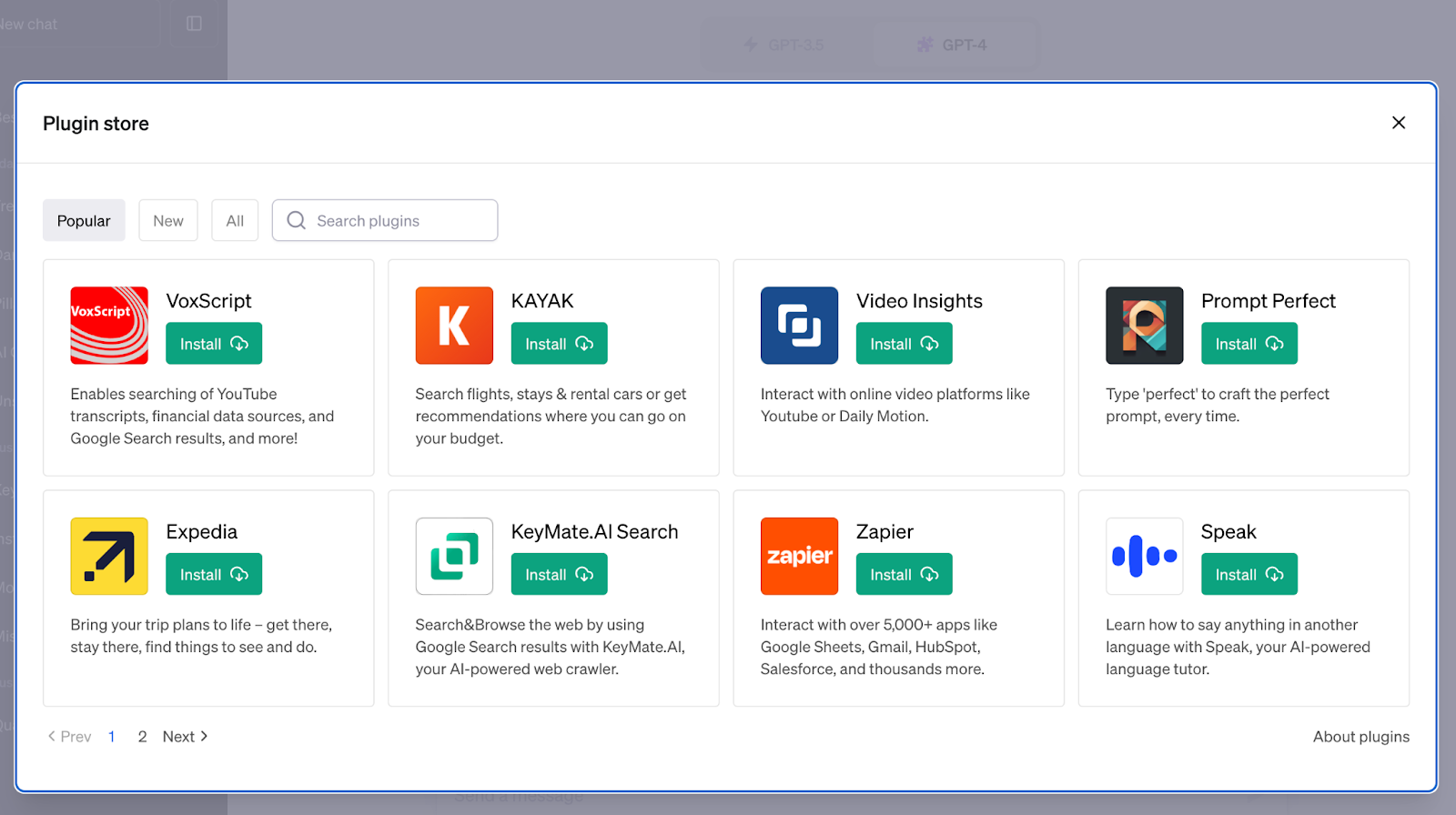
- Midjourney: Midjourney is a tool that can generate images from text descriptions. It is still under development, but it has the potential to be a powerful tool for marketers who need to create visuals for their marketing campaigns.
- Peech AI: Peech AI is designed to transform your audio content into written form. With it, you can easily transcribe your podcasts, webinars or interviews, turning spoken words into engaging written text. This neat little tool not only saves you time but also opens up a world of possibilities for repurposing your audio content into blog articles, social media posts, and more.
- Jasper AI: Jasper AI is tailored heavily for content creators. With this tool, you can draft blog articles, social media posts and marketing materials. What sets Jasper apart is its ability to understand your specific needs and create content that resonates with your target audience. It basically takes the lingual capabilities of tools like ChatGPT and Bard and contextualizes prompts a bit better.
- Surfer SEO: Surfer SEO is your go-to tool for boosting your website’s search engine ranking and optimizing your content for maximum visibility. It’s like having an SEO expert by your side, guiding you through the nuances of what you need to include for your piece of content to rank well on search engines:
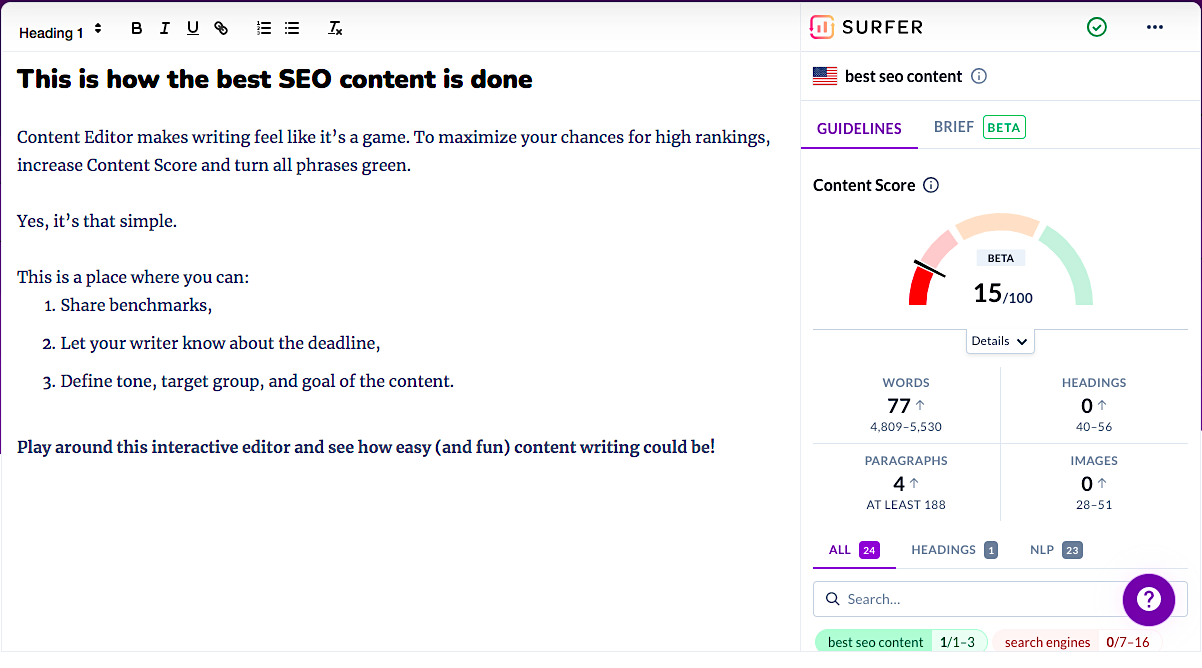
How to Use AI Marketing Automation Effectively
To use AI marketing automation effectively, it is important to keep these tips in mind:
- Identify the marketing tasks and processes that you want to automate. Focus on tasks that are repetitive, time-consuming or data-driven.
- Choose the right AI marketing automation tools for your needs. There are a variety of tools available, so it is important to choose ones that are compatible with your existing marketing stack and that offer the features that you need.
- Set clear goals for your AI marketing automation campaigns. What do you want to achieve with automation? Once you know your goals, you can develop strategies and tactics to achieve them.
- Monitor your results and make adjustments as needed. AI marketing automation is an ongoing process, so it is important to monitor your results and make adjustments as needed to improve your performance.
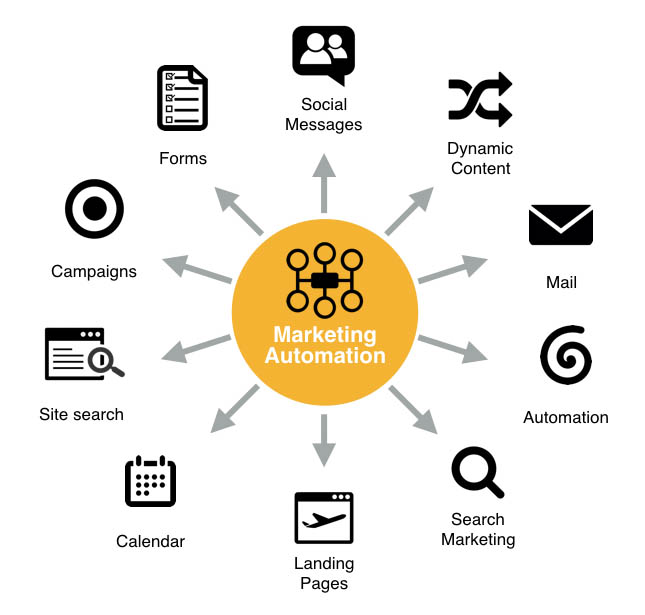
3 AI Marketing Automation Case Studies
Let’s put what we’ve learned into practice and take a look at a few cases of AI automation being championed by these iconic brands.
1) Netflix
Netflix uses AI marketing automation in a number of ways to personalize the user experience, including:
- Personalized Recommendations and Landing Pages: Netflix uses AI to analyze user viewing history, ratings and other data to recommend movies and TV shows that each user is likely to enjoy. They also create personalized landing pages for each user based on their viewing history and interests to help them find the content that they are most interested in or that they might be interested in:

- Personalized Emails: Netflix also uses AI to send personalized emails to users with recommendations for new content, reminders about shows that they have started but not finished watching, and other relevant information. This helps keep users engaged with the platform and coming back for more:
.jpg)
Netflix also uses AI marketing automation to improve its marketing campaigns – for example, to segment its audience and target its ads more effectively, and analyze the performance of its marketing campaigns and make adjustments as needed.
2) Amazon
One of the prominent ways Amazon employs AI is through its product recommendation system.
Gone are the days of generic product suggestions; AI meticulously analyzes a user’s browsing and purchase history, preferences and even the behaviors of similar users to provide tailored recommendations. This personalized touch is akin to having your own personal shopper who anticipates your needs and whims, which significantly enhances the user experience.
At its core, Amazon relies on collaborative filtering, which identifies patterns in user behavior, such as purchase history and ratings, to suggest products to users with similar tastes:
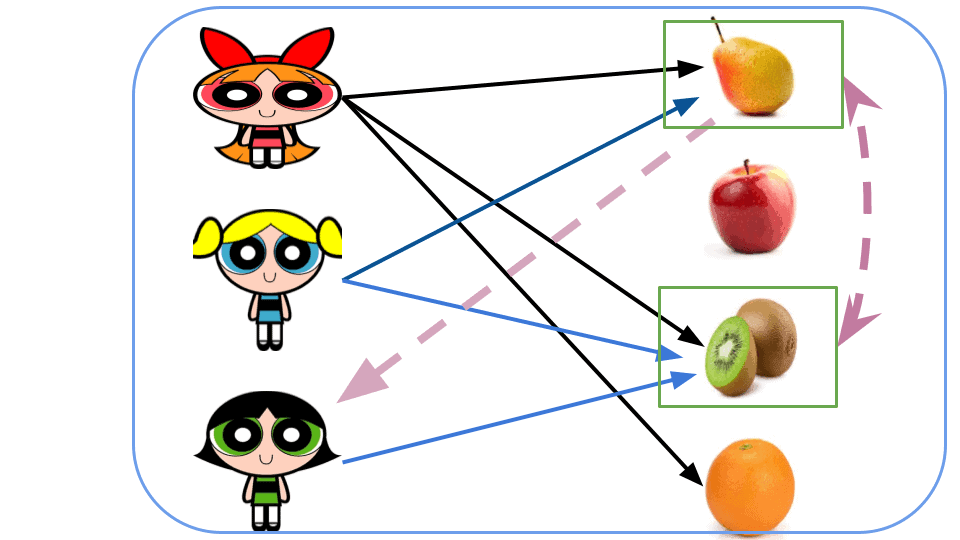
This can be user-based, where similar users are matched, or item-based, where products with common purchasers are recommended.
3) Spotify
Spotify’s secret ingredient lies in its ability to decode the musical preferences of its listeners and serve up tracks that resonate with them. How does it do that?
It’s all done by its AI algorithms, which meticulously analyze user data, including listening history, genre preferences and even mood indicators. These algorithms transform raw data into personalized playlists and recommendations, all the while staying unobtrusively in the background:

Spotify is successful in this approach because of its ability to curate a personalized experience for each user. AI-driven recommendations ensure that every playlist is unique and highly focused, specifically tailored to the listener’s taste.
The result? Listeners spend more time on the platform, discover new tracks they might have otherwise missed, and keep coming back for more.
The Future of AI Marketing Automation
AI marketing automation is still in its early stages of development, but it has the potential to revolutionize the way that marketing is done. As AI technology continues to improve, we can expect to see even more innovative and effective AI marketing automation tools and strategies emerge.
Here are a few more thoughts on where we think the future of AI marketing automation is heading:
- AI will become more integrated into marketing workflows. Today, many AI marketing automation tools are used as standalone tools. However, in the future, AI will be more integrated into existing marketing workflows. This will make it easier for marketers to automate tasks and get insights from their data.
- AI will become more powerful and accessible. As AI technology continues to develop, AI marketing automation tools will become more powerful and accessible to businesses of all sizes. This will make it possible for more businesses to benefit from AI marketing automation.
- AI will be used to create new and innovative marketing campaigns. AI can be used to create new and innovative marketing campaigns that would not be possible without AI. For example, AI can be used to generate personalized videos and images, create interactive content, and target customers with more relevant ads.
- AI will be used to improve customer service. AI can be used to improve customer service by providing customers with personalized support and answering their questions quickly and accurately.
- AI will redefine the way search engines work. With how Google’s search generative experience is altering the way people get answers to their queries, it’s prudent that we as marketers look for ways to position our brands in a zero-click search environment:
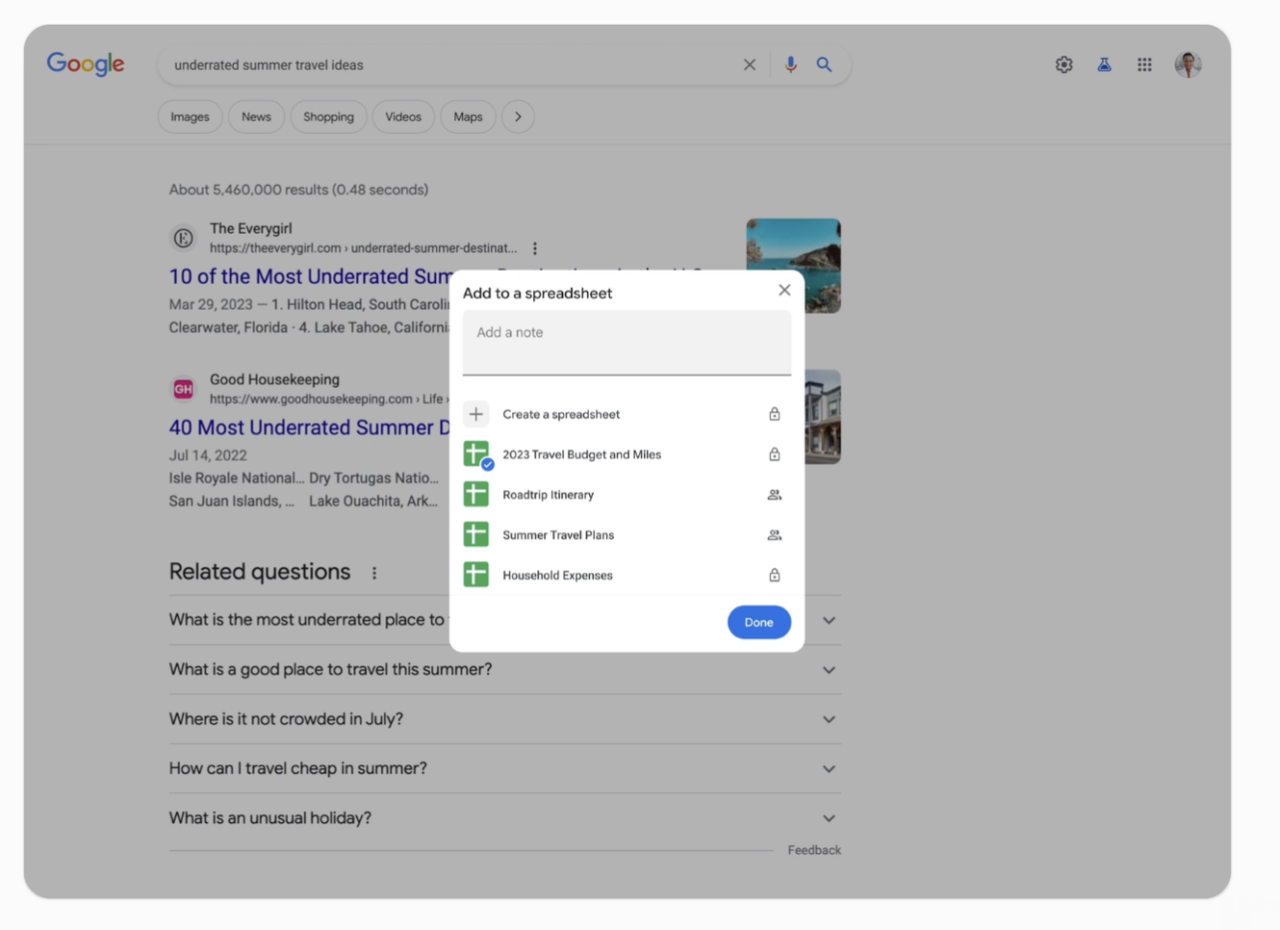
- “AI SEO” or “AIO” (Artificial Intelligence Optimization) is going to be a thing. With how much people are taking advantage of tools like Google Bard or ChatGPT, they often want to go straight to those sources instead of the SERPs. Especially with how Google Bard can pull (almost) dynamically from Google’s current data, it makes it an attractive alternative to answering an informational query (and sometimes even transactional intent as well). Marketers will want to find ways to “rank” their brand among these generative AI platforms given how much audience opportunity dwells there.
Last Thoughts on AI Marketing Automation
Overall, the future of AI marketing automation is very bright. AI has the potential to revolutionize the way that marketing is done and help businesses to achieve their marketing goals more effectively.
How will you brand adapt to the shifting tides of AI marketing automation?
If you’re ready to level up your content with AI tools like marketing automation, Single Grain’s AI experts can help!👇
For more insights and lessons about marketing, check out our Marketing School podcast on YouTube.



